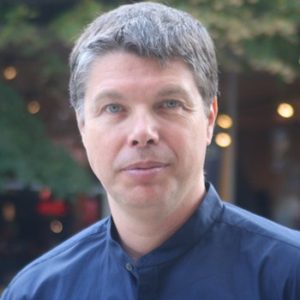In today’s conversation we explore the use of “upper, middle and lower” class herbs. This does not mean that upper is better; it means each medicinal has an affinity for more formed or less formed aspects of a person. “Upper” does not mean better, nor “lower” mean worse, these are simply demarcations on where a particular herb will be effective. It’s our job as practitioners to choose the right tool for the right job.
Listen in to this conversation that cautions about conflating “upper” with “better.” And goes into how Chinese medicine can be used for acute and emergent conditions that some doctors used to treat quite well before the advent of emergency rooms.
- A look at some issues with translation
- Upper does not always mean better
- We are not concerned with superior or inferior, but rather where an herb has its effect
- Read the preface to the Shang Han Lun
- Choose the level of herb to correctly treat the location of disease
- Yin and Yang are not nouns
- Chinese medicine can be effective for acute, emergent conditions, but much of that knowledge has been lost
- Chinese was not developed in the scholarly teahouse, it was borne of the rigors, troubles, strive and illness that came from war, poor sanitation, epidemics and trauma
- Treating acute pneumonia
- Some uses for high amounts of shi gao
- Introduction to Jing, Qi, Shen
Demand to see good medicine from the famous practitioners out there. Ask to observe and assist in their clinics, watch them treat, see how they put what they say into practice. If they say no, ask them why not. We all had good teachers we watched every day to learn what we did, so why shouldn’t you be able to watch us?

Andrew Nugent-Head
I was born into a multicultural, multilingual, extremely eccentric family, so it was only natural I would think it a good idea to leave the states at 18 to live in China for 28 years. Fortunately, my choice worked out well–it doesn't always. Along with having no shortage of bad teachers excited to make money and fame at the expense of the foreigner, I met three great teachers who took me beyond the PRC and into the heart of the Chinese arts.
Each was painfully aware that the true power within the Chinese arts was dying, each angry that modern Chinese had no understanding of the depths of their own culture, and each heartbroken that their own children simply did not have what it took to carry on their knowledge. The bittersweet reality for all of us was that the one person who cared to document and train with literally everything he had was an American. What I lost in not being Chinese, I gained in not being Chinese. Certainly some things were never available to me as a foreigner, but then again none of my teachers had to follow the social mores which would have been forced upon them if I was Chinese.
My advice to all who wish to learn as I did: understand that there is no perfect, and maximize the good of your situation while minimizing the bad–there will always be both and whichever we dwell on will be what marks us. That, and smile. Being good natured has opened more doors for me than anything else ever has.
Links and Resources
To learn more about their commitment to practicing a clinically focused classical Chinese medicine, visit Andrew and JulieAnn Nugent-Head’s online teaching academy.
To see clinically focused classical Chinese medicine in practice, observe them in their clinic.
And, of course, YouTube. there are more things up there than there are weeds in Andrew's garden.
Join the discussion!
Leave a comment on Qiological's Facebook page.
